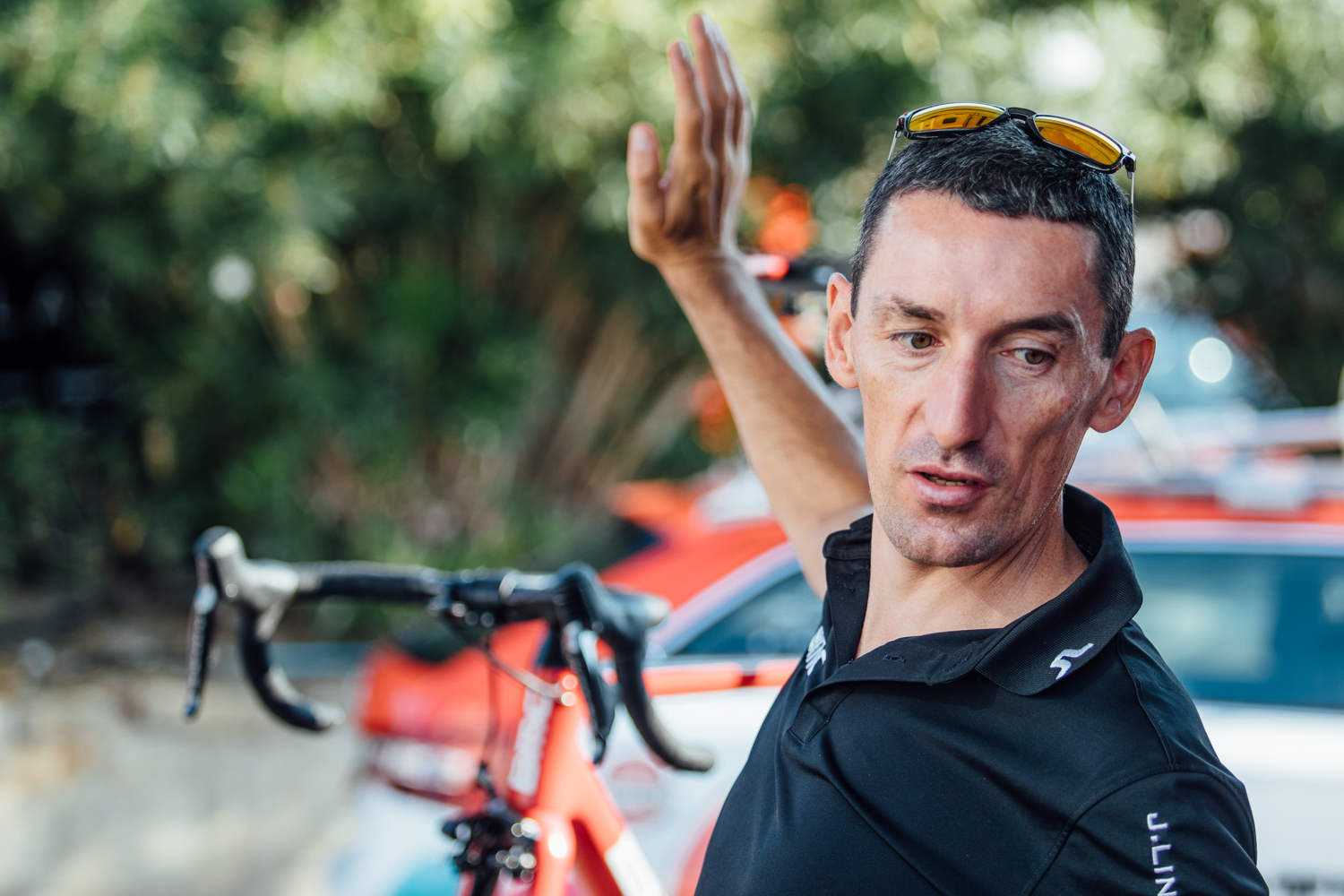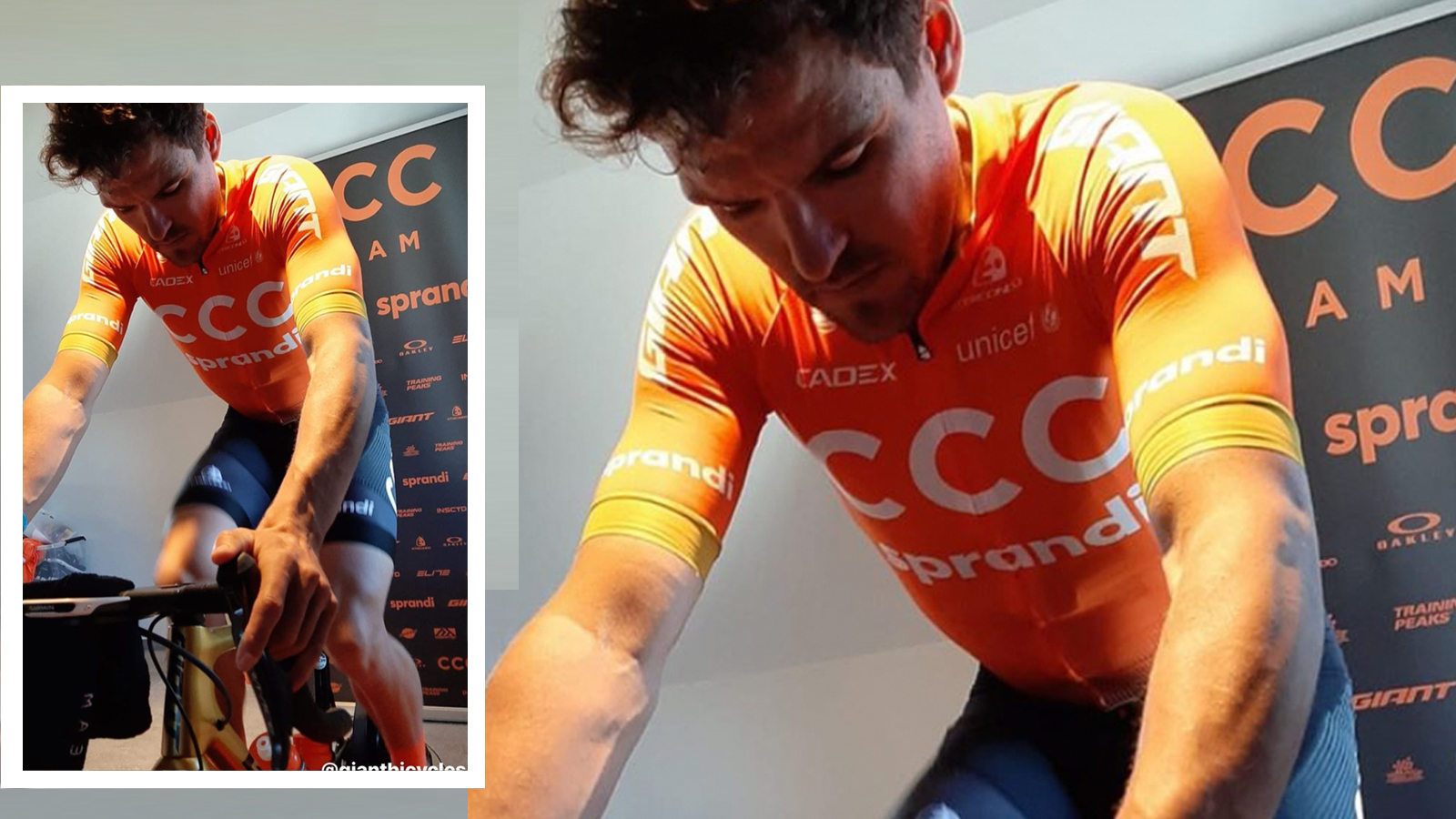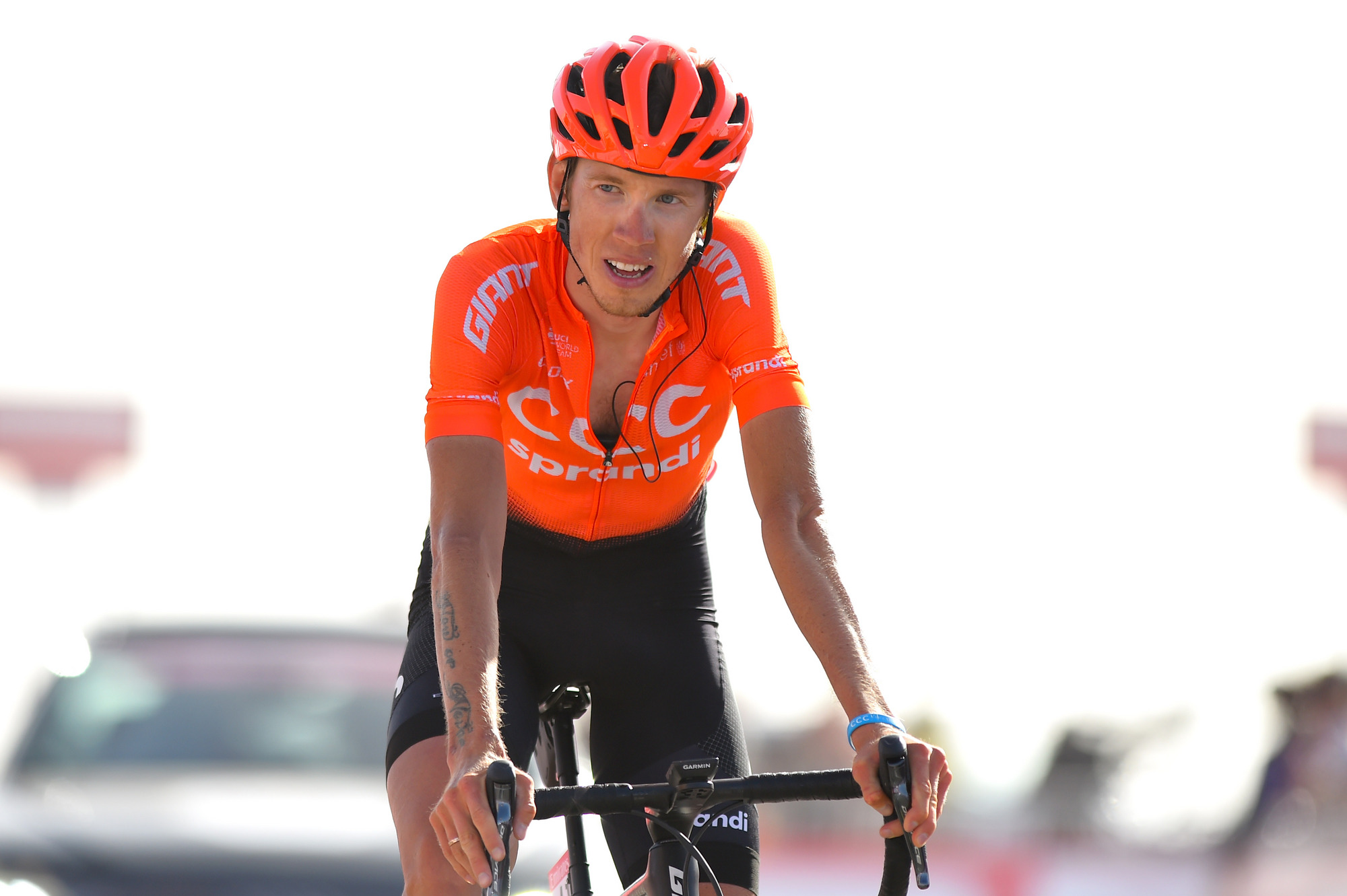Pinotti predicts intense Tour de France and Ineos-Jumbo battle royal
'It's a Tour for climbers so if Bernal starts to roll, it'll be hard to stop him' says CCC Team head coach

Former pro Marco Pinotti expects the 2020 Tour de France to be a battle royal between Team Ineos and Jumbo-Visma, with few surprises but lots of high-intensity racing amongst the big-name favourites due to riders starting the Tour fresh-legged and at a higher peak of form. He believes Chris Froome has benefited most from racing delays due to the COVID-19 lockdowns, but predicts the British rider will only return as a Tour de France contender in 2021.
Pinotti is now Head of Performance at the CCC Team, managing the form and fitness of all the riders, along with his coaching staff and fellow managers. He is also a former rider who excelled at squeezing the best out of his talent in time trials, while also winning other races and finishing ninth in the 2010 Giro d'Italia. He understands the science of physiology and the psychology needed to train hard and perform at the WorldTour level.
"The Tour de France contenders have a lot of time to get ready and so I think we'll see a great race. I don't honestly think that the lack of racing beforehand will mean that we see a more unpredictable race, but it will be intense and at an extremely high level," Pinotti predicts when speaking to Cyclingnews.
"These days, you can train near perfectly for a Grand Tour instead of racing, and the Tour de France in September helps that process.
"Indeed, after being away from racing for so long, everyone will be fresh, motivated and fit. They'll be jumping out of their skins. It'd be a huge mistake if they weren't. Nobody will be race-fatigued or carrying injury, and their muscles will be fresh. Someone may blow up, but it'll be in the first week as they adapt to racing day after day. But if someone is good in the first week and can make a big effort in the first week, they'll be able to recover and have nearly the same ability to attack in the final week."
Pinotti laughs long and loud when Cyclingnews paraphrases a former British soccer player turned pundit who suggested: "The Tour de France is a simple race: 22 teams race for three weeks and at the end Team Ineos always win."
"I don't honestly expect many surprises. It's a Tour for climbers so if Egan Bernal starts to roll, it'll be hard to stop him…" Pinotti predicts.
Get The Leadout Newsletter
The latest race content, interviews, features, reviews and expert buying guides, direct to your inbox!
"But I expect the fight for the yellow jersey will be a fight between Team Ineos and Jumbo-Visma. We all know the strength of Ineos, with Bernal, Geraint Thomas and Froome, but Jumbo-Visma are coming up fast. Last year, Primoz Roglic started strong, riding and winning a lot of races, but this year he'll be more focused, while Tom Dumoulin could be back to his best. It'll be fascinating to watch."
When asked about Froome's chances at the 2020 Tour de France, Pinotti speaks from his personal experience about recovering from a major injury and setback. He doesn't enter into the debate about whether Froome should change teams mid-season to secure clear team leadership, preferring to give a sincere answer based on personal observation.
"I saw Chris at the UAE Tour, and he was really happy to be back racing. He seemed a bit out of whack on the bike, but I'm sure he's worked on that since then. Will he be back to his best? I really hope he is but I'm not sure; I've got my doubts…" Pinotti says carefully.
"For sure, the COVID-19 lockdown has helped him. It gave him two extra months and he worked hard in the gym and on the rollers. But I think he'll need even more time to get back to his very best. I think he could be back at 100 per cent for the 2021 Tour de France rather than this year's race."
August is the new March in pro cycling training

Pinotti will be hoping CCC Team's Ilnur Zakarin can also be a contender, while Greg Van Avermaet and Matteo Trentin will target stage victories and then the October Classics. Pinotti and his staff have been following and curating their training, balancing quantity with quality, mental freshness with fatigue, and juggling with the benefits and complications of a block of altitude training.
Based in Orio Sotto, south of Bergamo, one of the worst-hit areas in Italy by the COVID-19 virus, Pinotti dug into the hard-working, ethical character of the Bergamaschi people to push on during the pandemic. He spent the lockdown sharing his time between his young family and his riders. Instead of being away at races or training camps, he dedicated extra time for his young children and coached his riders virtually and digitally.
"There seem to be two different kinds of riders. There are those who suffered more psychologically due to the COVID-19 coronavirus and who switched off for at least a month, and may be struggling to take it all in and get going again. The others, most likely those in France, Italy and Spain, who couldn't ride outside, are probably better off. They kept training indoors and had some focus. I told my riders in that situation to knock off on the quantity work and focus on holding onto a certain intensity and high-end form."
The lockdown and the revised calendar have changed the season. August is the new March in the cycling season, with April, May and June key months of training and preparation.
"We're coming into the European summer, but for the riders, it's the January of the new season. They lived a kind of second winter during the lockdown. The riders are physically and mentally fresher, that's for sure. If they continue doing what they did, they'll be fitter and stronger when the racing starts in earnest in August," he predicts.
"They did a lot of gym and core work at home in March and April, and even before we had a clear, confirmed calendar, it was important to start upping the workload when everyone could train outdoors so that, even if we don't race, the riders won't miss a full season of fitness, which would create a hole in their careers and slow them in 2021."
Riders were encouraged to try 'Everesting' or go on long rides near their homes to build their base fitness during the spring.
"The idea was to build their base fitness by doing something different – something more adventurous. That's why a rider like Alessandro De Marchi did nine-hour rides into his local mountains and others did long gravel rides," Pinotti says.
"In November or December, it's not possible to do that in Europe due to the lack of light and the colder weather. The weather was far better in May after the lockdown, and so it was good for the riders to do some adventures and ride into the high mountains for nine hours, perhaps once a week. They did the work but stayed mentally fresh."
Balancing the training before the non-stop racing begins

The extra months of no racing have helped Pinotti better control the process of training, but there will be a price to pay when the racing starts in late July. It will be virtually nonstop, making June and July vital months of work for every rider.
"When the racing starts, there won't be much time for quality training. There'll be time to rest but not much time to catch up. If you start off on the wrong foot, there's little time or space to get back on track," Pinotti warns.
"In a normal season, riders work and race to create a gradual increase in form. The races are shorter in February, and not so important. This summer, Milan-San Remo is on August 8, Il Lombardia a week later and the Critérium du Dauphiné is at the same time. We're diving straight into the heart of the season."
That makes training in June and July extra important.
"For the riders who are doing the Tour, the revised season has a simple logic to it: they have to be on form in September, and then after that they've got the World Championships and the Classics or the Vuelta.
"Those targeting the Giro can do things differently, but it will be more complex. They can target Milan-San Remo and Il Lombardia, do some altitude training, and then race Tirreno-Adriatico before the Giro. For all the others, it's a bit of a conundrum, and they can only focus on quality training and try to race whenever they can."
"Altitude work has its benefits, but it's probably only needed by the Grand Tour contenders. They have the benefits of altitude in August and September but will need to do intensity too. It's easy to train at altitude and do too much, so you over train and don’t peak as you should.to adapt to training at altitude.
"Altitude work has its benefits, but it's probably only needed by the Grand Tour contenders. They have the benefits of altitude in August and September, but will need to do intensity, too. It's easy to train at altitude and do too much, so you over-train and don't peak as you should.
"If you have a good coach, riders should be OK, but the new season, coming after the lockdown and time at home, will be new for everyone. It's hard for the riders, but it's a fascinating moment for a coach like me."

Stephen is one of the most experienced member of the Cyclingnews team, having reported on professional cycling since 1994. He has been Head of News at Cyclingnews since 2022, before which he held the position of European editor since 2012 and previously worked for Reuters, Shift Active Media, and CyclingWeekly, among other publications.